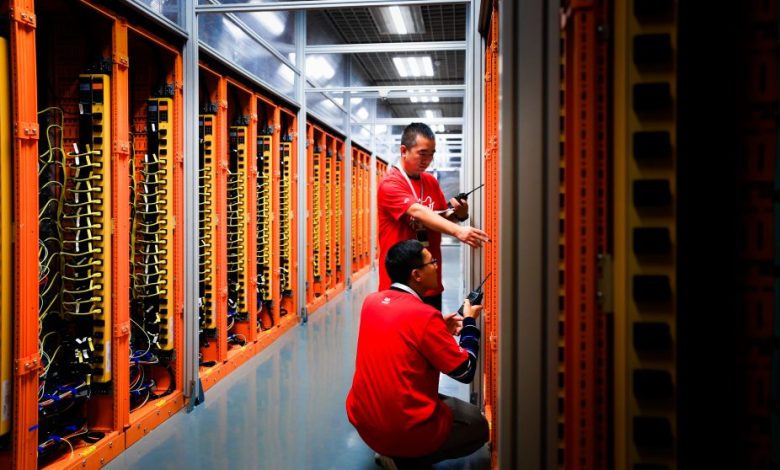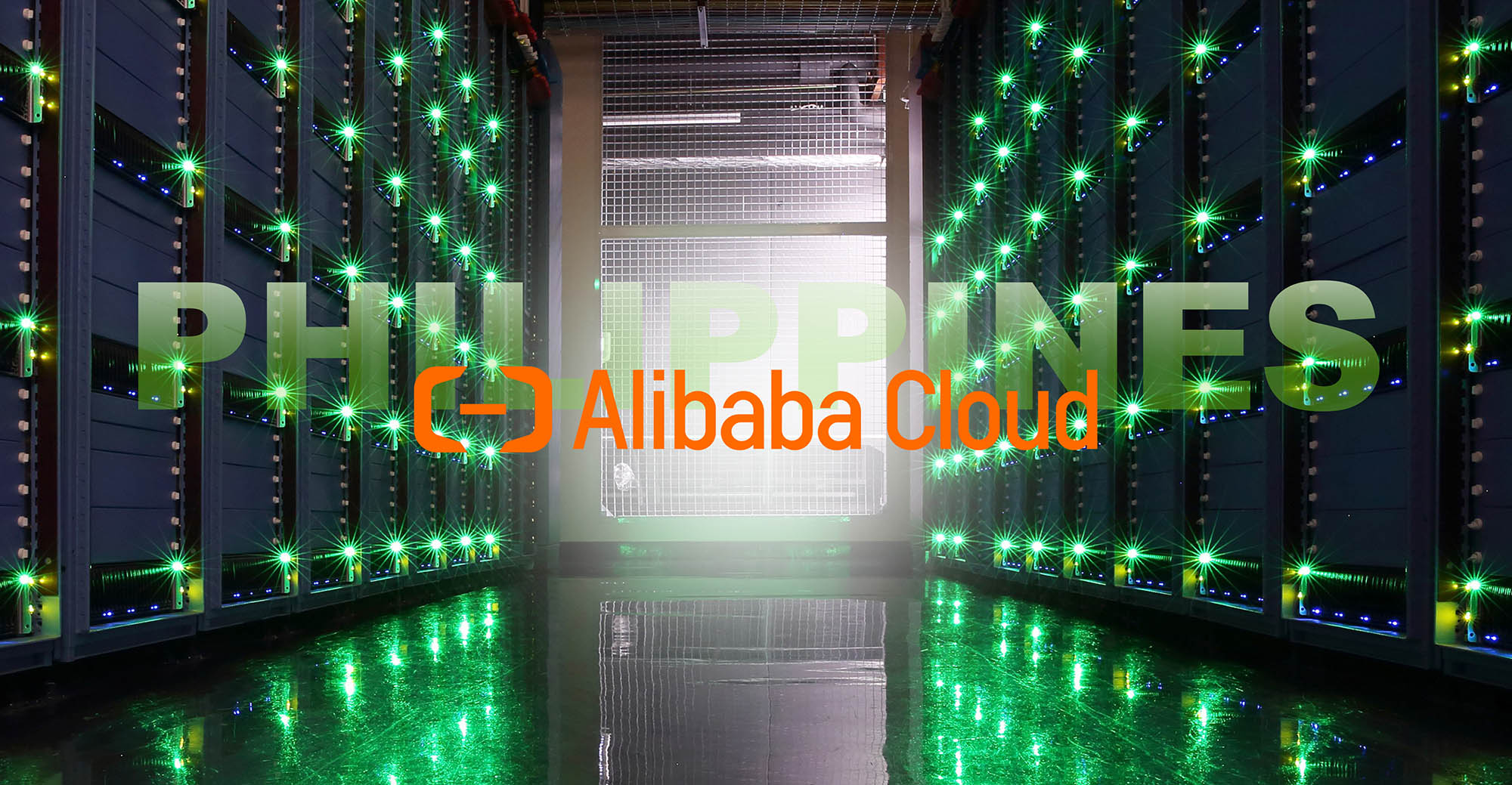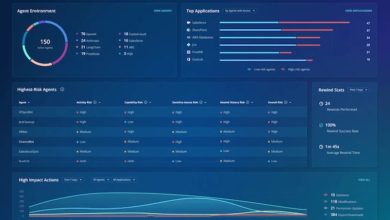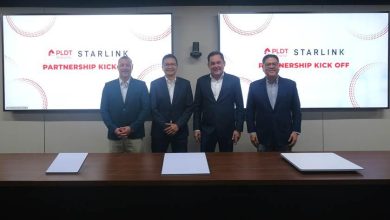Alibaba Cloud Celebrates 10 Years in Singapore with New Data Centres, AI Global Competency Centre
New Data Centres in Malaysia and the Philippines to Meet Growing Demand for AI and Cloud Services

Alibaba Cloud, the digital technology and intelligence backbone of Alibaba Group, yesterday marked a decade of operations in Singapore. To commemorate this milestone, it unveiled new infrastructure investments, a new Artificial Intelligence (AI) competency centre, advanced cloud and AI technologies, and global research findings on green AI adoption at its Global Summit, underscoring its ongoing commitment to advancing AI innovation.
Held in Singapore, the Alibaba Cloud Global Summit gathered over 500 leaders from business, technology, and the public sector worldwide to explore the future of AI, cloud computing, and sustainable digital transformation. The event also reaffirmed Singapore’s position as a strategic hub and international headquarters for Alibaba Cloud’s long-term growth in Asia-Pacific and beyond.
Selina Yuan, President of International Business at Alibaba Cloud Intelligence, said: “Over the past decade, Singapore has been both an innovation center and a gateway to the region’s digital economy. As we celebrate this important milestone, we reaffirm our commitment to empowering businesses of all sizes and verticals while advancing cutting-edge AI innovations and driving sustainable digital transformation in Singapore for years to come. Together with our partners and customers, we look forward to shaping Singapore’s future as a global leader in AI and cloud innovation.”

New Data Centres in Malaysia and the Philippines
To meet the growing demand for cloud and AI services across Southeast Asia, Alibaba Cloud announced the launch of its third data centre in Malaysia on 1 July 2025. It also plans to open its second data centre in the Philippines in October 2025.
Those expansions build on earlier infrastructure investments in Thailand, Mexico, and South Korea, announced in the first half of 2025. This growing network ensures that Alibaba Cloud can meet the rising global demand for secure, resilient and scalable cloud services, empowering businesses, developers, and organisations to innovate and scale with confidence as AI adoption accelerates across industries.
Launch of AI Global Competency Centre to Power Enterprise Innovation
During the event, Alibaba Cloud launched its first AI Global Competency Centre (AIGCC) in Singapore. The move aims to accelerate AI adoption by supporting enterprises of all sizes, from small and medium enterprises (SMEs) to large-scale organisations, while also addressing the growing global demand for AI talent.
The centre is designed to support over 5,000 businesses and 100,000 developers, offering access to advanced AI models and powerful computing resources to accelerate experimentation and deployment. Developers and businesses will benefit from the AI Innovation Lab, which offers token credits, curated datasets and personalised support tailored to real-world scenarios and industry needs.
As a collaborative innovation hub, the AIGCC aims to bring together more than 1,000 companies and startups to co-develop next-generation AI solutions, fostering an ecosystem of applied innovation. The center will also introduce over 10 AI agents across key industries—including finance, healthcare, logistics, manufacturing, retail and energy—demonstrating AI’s potential across different verticals.
To build a robust AI talent pipeline, Alibaba Cloud will partner with more than 120 universities and institutions globally, with the goal of training 100,000 AI professionals annually.
New Alibaba Cloud Products for Global AI Development
Alibaba Cloud announced new offerings to international customers by upgrading Infrastructure as a Service (IaaS) and Platform as a Service (PaaS) products and introducing new AI tools. Alibaba Cloud Data Transmission Service (DTS), a real-time data streaming service, introduced a new “One Channel For AI” capability to streamline multimodal data preparation.
This feature establishes an end-to-end pipeline that automatically converts both unstructured and structured data—including documents, images, tables, audio, and video—into vector databases, enabling developers to create real-time knowledge bases and create Retrieval-Augmented Generation (RAG) applications with just few clicks. By automating the vectorisation workflow, the upgraded DTS lowers technical barriers, enabling businesses to deploy LLM-powered applications faster and more efficiently.
Alibaba Cloud’s Platform for AI (PAI) has enhanced its high-performance AI inference capabilities to better support complex models like Mixture of Experts (MoE) and large-scale deployments with two key improvements in its PAI-Elastic Algorithm Service (EAS). For MoE architectures, PAI-EAS now features Expert Parallel (EP), an advanced optimisation that works with a prefill-decode disaggregation framework to boost efficiency. This combination significantly increases inference efficiency, enabling higher throughput for LLMs while optimising resource utilisation. For example, the EP distributed deployment for Qwen3 235B achieves a TPS (Tokens Per Second) performance exceeding 15k, while maintaining an average per-token latency of under 50 milliseconds.
PAI-EAS also tackles slow cold starts and inefficient scaling with its new Model Weights Service, which dramatically reduces loading times. This makes it possible to spin up instances in seconds, rather than minutes. Tests with Qwen3-8B show 89.8% faster cold starts and 97.6% quicker scaling, while Qwen3-32B achieves 91.4% faster cold starts and near-instant scaling.
In response to customer demand, the company also revealed that its 9th Generation intel-based Enterprise Elastic Compute Service (ECS) instance will be available across additional global markets from July, including Japan, South Korea, Thailand, Malaysia, the Philippines, the United Arab Emirates, Germany, and the UK. Since its launch in April, nearly 10,000 businesses have adopted the upgraded instance, leveraging its industry-leading performance. This latest generation delivers 20% greater computing efficiency compared to previous iterations. By integrating elastic Remote Direct Memory Access (eRDMA) technology for ultra-fast networking, it achieves up to 50% performance gains in high-performance computing (HPC), search recommendations, and Redis database workloads.
Alibaba Cloud’s sustainability platform, Energy Expert, introduced a cutting-edge AI-driven ESG Reporting solution, empowering organisations to navigate the complexities of environmental, social, and governance (ESG) disclosures with precision and ease. Powered by Alibaba’s proprietary AI model Qwen, the innovative solution streamlines report generation through AI-powered tools – such as guided structuring, automated content creation and actionable insights – while enabling seamless collaboration via real-time task management and progress tracking.
Designed to align with global standards—including the International Sustainability Standards Board (ISSB), Global Reporting Initiative (GRI), and Sustainability Accounting Standards Board (SASB)—the platform ensures compliance, reduces operational costs, and strengthens audit readiness through traceable data lineage and centralised record-keeping.

New Global Study Reveals Growing Awareness of Green AI and Adoption Challenges
Also unveiled at the Global Summit were findings from a global study on the development and adoption of artificial intelligence systems that minimise energy consumption and environmental impact, known as green AI. The study was conducted by Forrester Consulting and commissioned by Alibaba in collaboration with Alibaba-NTU Global e-Sustainability CorpLab (ANGEL). Surveying over 464 business and IT leaders worldwide, including Singapore, the study reveals the growing recognition of the importance of green AI, but also highlights a significant gap between vision and execution.
The study found that while 84% of leaders who have implemented an AI sustainability vision consider green AI to be important, 69% of organisations globally are still at the beginner stage of AI adoption. Many cited persistent technical challenges as key barriers to progress—among them, the lack of sustainably sourced materials for AI hardware (80%) and the difficulty of optimising data centre energy usage (73%).
Beyond the technical hurdles, the survey also revealed widespread capability gaps. A significant number of decision-makers indicated they lacked the knowledge to define a clear green AI strategy (74%), as well as the skills needed to implement and operate it (76%).
Considering those challenges, the study recommends several key strategies to drive wider adoption of Green AI, including powering data centres with renewable energy, deploying edge computing with optimised smaller models to reduce data centre loads, and developing applications with code that requires less computational power. It also highlights the importance of increased collaboration between public and private sectors on regulation and standards and leveraging open-source models to minimise pre-training and energy consumption.
International Customers Leveraging Cloud and Qwen for AI Innovation
To help drive digital transformation and accelerate AI innovation initiatives, an increasing number of international customers have selected Alibaba Cloud as its digital solutions provider for its trusted cloud computing capabilities and advanced AI technologies.
After successfully migrating GoTo Financial’s infrastructure to Alibaba Cloud, GoTo Group, the largest digital ecosystem in Indonesia, has now migrated its core business intelligence data platform to Alibaba Cloud’s MaxCompute to boost operational agility and drive cost efficiency. With MaxCompute’s fully managed architecture and automation, Alibaba Cloud delivered a seamless, six-month migration with tens of petabytes of data across GoTo’s complex system, achieving zero downtime and uninterrupted business continuity for GoTo Group throughout the process.
William Xiong, Group Chief Technology Officer of GoTo Group, said during the summit: “The migration to Alibaba Cloud’s MaxCompute has enhanced the scalability and resilience of our data platform. By delivering cost efficiency, performance parity, and operational continuity, this collaboration strengthens the technical foundation for GoTo’s ecosystem. This partnership positions us to drive innovation and deliver transformative solutions for millions of users across the ecosystem, while staying aligned with Indonesia’s data sovereignty goals.”
To enhance data management efficiency, GoTo Financial has migrated its lending workload to Alibaba Cloud’s database solutions. By leveraging cloud-native database PolarDB and in-memory database Tair, GoTo Financial’s lending systems now deliver high performance and ultra-low latency, seamlessly supporting over 500 microservices.

Many customers have also leveraged Alibaba Cloud’s flagship large language model, Qwen, to deliver innovative solutions, thanks to its robust multilingual capabilities. Qwen 3, the latest iteration of the Qwen family, supports 119 languages and has demonstrated exceptional performance in multilingual mathematical reasoning and translation, particularly in Asian languages, according to public datasets.
For example, VisionTech, a generative AI company focused on boosting sales, enhancing customer experiences, and addressing manpower challenges in Singapore, tapped into Alibaba Cloud’s infrastructure and AI technologies to fuel its business growth across Southeast Asia. With Alibaba Cloud’s services, including Elastic Compute Service (ECS) and a strong regional presence, VisionTech reduced infrastructure costs by over 25%, improved support turnaround times, and accelerated AI deployment for enterprises and SMEs. VisionTech is also incorporating Qwen, Alibaba’s flagship large language model, as one of its core large language models (LLMs) to power its solutions, enhancing its AI bots’ ability to seamlessly manage multilingual interactions.
“Our partnership with Alibaba Cloud allows us to deliver smarter, scalable, and enterprise-ready AI solutions while maintaining operational efficiency and customer satisfaction,” said Lim Hui Jie, CEO of VisionTech. “Qwen’s strong performance in handling multilingual conversational inputs and real-time translation gives us a distinct edge over other LLMs, enabling us to fast-track deployments and improve user engagement—whether it’s English, Chinese, Malay, or Japanese. By dynamically switching languages in real-time, our AI bots create a seamless experience that resonates with users in various markets, ensuring that our solutions feel native and culturally aligned.”
FLUX, a leading Japanese technology solution provider, partnered with Alibaba Cloud to accelerate AI adoption in Japan. Through this collaboration, FLUX will introduce Qwen—Alibaba’s family of large language models (LLMs)—in various sizes to Japanese enterprises, enabling GenAI integration into their critical workflows. Additionally, FLUX will leverage Qwen to develop FLUX LLM solution, a customised AI solution designed to help Japanese businesses of all sizes optimise operations and enhance service capabilities.
Alibaba Cloud and Al-Futtaim, a Dubai-based, 90-year-old, privately held and diversified business group – recognized as one of the region’s most progressive enterprises operating across 18 countries in the Middle East, North Africa, and Asia – have signed a strategic Memorandum of Understanding (MoU) to accelerate Al-Futtaim’s digital transformation and global innovation agenda.
Under the agreement, Al-Futtaim will access Alibaba Cloud’s advanced AI capabilities, including proprietary foundation models and open-source frameworks to drive AI-powered innovation across its business units. The collaboration will also enable Al-Futtaim to leverage Alibaba’s global cloud infrastructure, broad digital ecosystem, and industry expertise to support its expansion into key international markets and scale transformative outcomes across sectors.




